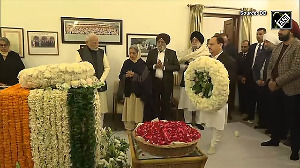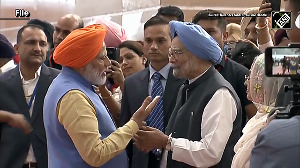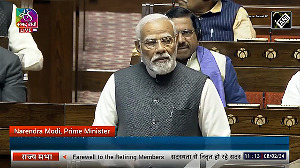Even though India is not a signatory to the Nuclear Non-Proliferation Treaty, the Obama Administration said on Wednesday that New Delhi had a key role to play in strengthening of global nuclear non-proliferation regime.
"I think India, will play an important role both in the national security summit next week as well as the NPT review conference in May," Assistant Secretary of State for Public Affairs P J Crowley told the media.
"We think, as the Nuclear Posture Review reflected on its release yesterday, we are less concerned about the exchange of nuclear weapons among states; we're more concerned about how we keep, you know, nuclear technology and know-how out of the hands of outlier states and rogue elements," Crowley said.
"India will have an important role to play both in terms of reinforcing and strengthening the Non-Proliferation Treaty, but also demonstrating, as it is itself, how it can both, protect, nuclear technology but while also, allowing the growth of civilian nuclear capacity," Crowley said in response to a question.
Earlier in the day, Special US Advisor Non Proliferation and Arms Control Robert J Einhorn said US and India have increasingly become partners in this area of dealing with the global proliferation threat with the threat of nuclear terrorism.
"We talk about these issues on a bilateral and on a multilateral basis with India quite frequently," he said at the Washington Foreign Press Center.
Einhorn said the Obama Administration "appreciates and understands" India's attitude towards the NPT.
"It's a long-standing attitude; it's a position of principle. What's especially important to us is that India behaves in a responsible manner. And it has behaved in a responsible manner," he said.
The state department official said the US would not push India to sign Comprehensive Test Ban Treaty until it is ratified by the United States Senate.
"Once we have ratified, we'll be in discussions with India about how to bring this important treaty into force.
"In terms of the Comprehensive Test-Ban Treaty, the Obama Administration will press hard for Senate ratification of the treaty, and then we will work with other countries to bring it into force. Bringing it into force means that the United States and India and Pakistan and China and a number of other countries must ratify. And we will be in discussions with India (once it is ratified by the Senate)," Einhorn said.








 © 2024 Rediff.com -
© 2024 Rediff.com -